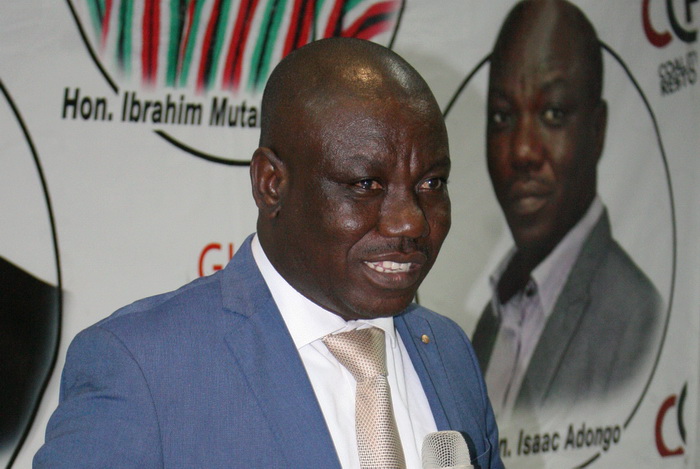The Member of Parliament (MP) for Bolgatanga Central, Mr Isaac Adongo, has accused the Bank of Ghana (BoG) for weakening public confidence in the banking sector.
In a letter to the Central Bank, the MP said the conduct and inactions of the regulatory body was fuelling heightened systemic risks and worsening confidence in the banking sector.
He said the summary of the economic and financial data that was recently published at the Monetary Policy Meeting of the BoG clearly showed a worsening banking sector and, therefore, called for immediate steps to address the issue.
Mr Adongo, who is also a member of Parliament’s Finance Committee, further mentioned the delay in the release of the audited financial statements of the GCB Bank and some corporate governance issues at ADB Bank, as some of the challenges the BoG must pay attention to.
Financial statement of GCB
Explaining further his position, Mr Adongo said the GCB had not filed its audited financial statements with the BoG in accordance with section 90(2) of the Banks and Special Deposit Institutions Act 2016, Act 930.
“It is strange that the BoG has remained loudly silent in the face of this breach and has not done anything to assure the market of steps taken to avert any negative consequences of this breach on the broader banking sector, given the size and stature of GCB in the financial markets of Ghana,” he noted.
He added, “I am aware that the GCB and not the Securities and Exchange Commission (SEC), and the BoG issued a statement somewhere in April 2018 claiming to have obtained approval from Securities and Exchange Commission (SEC) to file its audited financial statements at the end of May. This is clearly unacceptable as the market expects the regulators to give such assurances and not the one in breach of the law.”
Heightened anxiety
To date, he stated that no statement had been made by the regulator to clear the air and give confidence to the market, something he argued had heightened anxiety among industry players in the face of the lack of information regarding the impact of the takeover of UT/Capital banks by the GCB, especially its liquidity situation and quality of its assets after the takeover of the selected assets and liabilities of the resolved banks.
Mr Adongo said that had also led to fears in the banking sector, following requests by the GCB to the BoG for expensive liquidity support after taking over the banks.
The situation, he stated, had led to significant outflows from the GCB’s cheaper liquid assets to fund deposits of UT/Capital banks.
“This has also heightened the risk profile of the GCB in the financial sector resulting in challenges with trade-related support from correspondent and partner banks,” he posited.
ADB board
The legislator pointed out that the BoG’s failure to approve the board of directors of (ADB) after receiving the nomination of board members more than a year ago, adding that the breach clearly weakened the corporate governance of the bank.
He said the conduct by the BoG exposed depositors’ funds to significant risks.
“Unfortunately, these breaches are supervised by the BoG resulting in further systemic risks and eroding confidence in the banking sector,” he said.
Massive withdrawals
Mr Adongo indicated that the posturing of the central bank, in respect of Unibank and others, had led to massive withdrawals of cheap deposits by customers in place of very expensive emergency liquidity support from the BoG.
He said that was further worsening liquidity, profitability and the survival of banks.
“Your conduct has denied these banks the opportunities to access different layers of cheaper funds such as deposits and inter-bank liquidity and in place of these cheaper funds, you have continued to milk these banks by extending unsustainable expensive BoG emergency liquidity support.
“This singular conduct has transferred the possible profitability of Unibank and others that could turn them around to BoG that is now making huge revenues and improving its profitability by gradually collapsing these banks and heightening the systemic risks of the sector,” he explained.
Questions to be answered
The MP went ahead to pose some questions to the central bank.
Some of them included how much it paid to the GCB for the takeover of the selected assets and liabilities of UT and Capital banks, the total cost of the resolution of both banks, and how much liquidity support the BoG had extended to the GCB since it took over the two banks.

